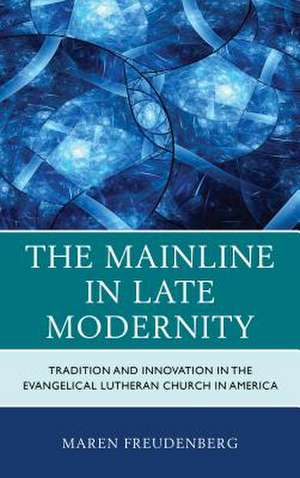Mainline in Late Modernity
Autor Maren Freudenbergen Hardback – 29 dec 2017
In the last fifty years, religion in America has changed dramatically, and Mainline Protestantism is following suit. This book reveals a fundamental transformation taking place in the Evangelical Lutheran Church in America. The ELCA is looking to postdenominational Christianity for inspiration on how to attract people to the pews, but is at the same time intent on preserving its confessional, liturgical tradition as much as possible in late modernity. As American religion grows increasingly experiential and individualistic, the ELCA is caught between its church heritage and a highly innovative culture that demands participative structures and a personal relationship with the divine. In the midst of this tension, the ELCA is deflating its church hierarchy and encouraging people to become involved in congregations on their own terms, while it continues to celebrate its confessional, liturgical identity. But can this balance between individual and institution be upheld in the long run? Or will the democratization and pluralization of the faith ultimately undermine the church? This book explores how the ELCA attempts to resist the forces of Americanization in late modernity even as it slowly but surely comes to resemble mainstream American religion more and more.
Preț: 687.32 lei
Preț vechi: 892.63 lei
-23% Nou
131.51€ • 137.33$ • 108.60£
Carte tipărită la comandă
Livrare economică 16-30 aprilie
Specificații
ISBN-10: 1498555845
Pagini: 242
Dimensiuni: 152 x 229 x 23 mm
Greutate: 0.57 kg
Editura: Rowman & Littlefield
